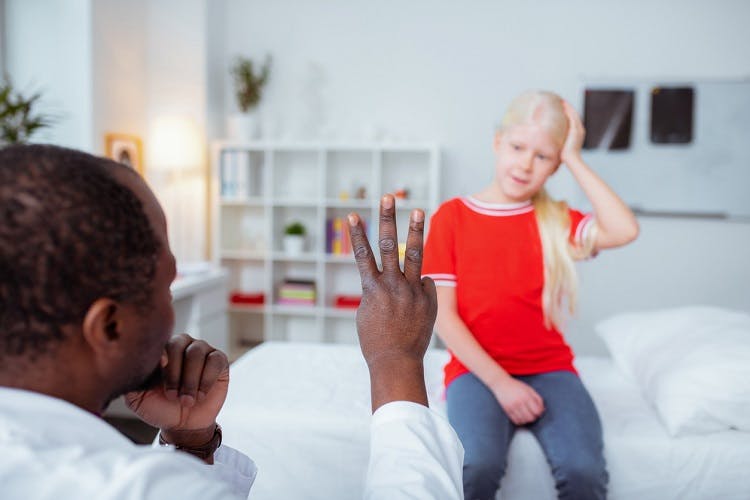Brain injuries can be devastating for children and adolescents and can lead to long-term physical and behavioral consequences. The signs of a brain injury may vary depending on its severity and location. Nonetheless, there are common indicators parents should look out for. Knowing the symptoms can help you identify when your child needs prompt medical attention. With early detection and treatment, you can limit the potential impacts of a brain injury.
Table of Contents
Common Types Of Brain Injuries In Children And Adolescents
The common types of brain injuries in kids and adolescents may include traumatic brain injury (TBI), concussions, contusions, hematomas, intracranial hemorrhages, skull fractures, hypoxic-ischemic injury (lack of oxygen to the brain), and diffuse axonal injury.
The causes of concussions in children and adolescents include accidental falls, car accidents, and sports-related activities. Falls are a common cause of traumatic brain injury among children below four, while car accidents are a common cause for teens and young adults. Sports-related injuries, such as those caused by a blow to the head or violent shaking, are also common in adolescents.
Headaches
Headaches can range from mild to severe and are often accompanied by nausea or vomiting, sensitivity to light, and blurred vision. If your child is experiencing persistent headaches, it may be a sign of a brain injury and should be evaluated by a healthcare provider.
Nausea
Nausea, accompanied by other common indicators, such as headaches, dizziness, or confusion, can all indicate that your child has suffered from some traumatic brain injury.

If you suspect your child has sustained head trauma, it is essential to seek medical attention right away so they can receive the necessary treatment for their condition. By being informed about what to look out for when it comes to possible head injuries, you are taking an essential step toward ensuring your child’s health and well-being.
Dizziness
Dizziness is one of the most common signs of a brain injury, especially in children and adolescents. Dizziness can be a sign that something is wrong with your brain. It often happens to kids who have had accidents or bumps on the head that hurt their brains.
Brain injuries can cause damage to parts of the brain that control balance, leading to episodes of dizziness or vertigo. This can be particularly dangerous if your child is engaging in physical activities such as sports or recreational activities.
Impaired Movement
Brain injuries can affect a child or adolescent’s ability to move normally, ranging from mild to severe impairments. This mostly depends on the type and severity of the injury and can include decreased strength and coordination in the affected areas and partial or complete paralysis.
Final Thoughts
Brain injuries can have severe and long-lasting effects on children and adolescents. Recognizing the signs of a brain injury is vital to getting your child the help they need. Knowing what symptoms to look for will enable you to act fast to limit any potential injury impacts. If you suspect your child has sustained a brain injury, seek prompt medical help and file a claim if this results from a negligent party.

